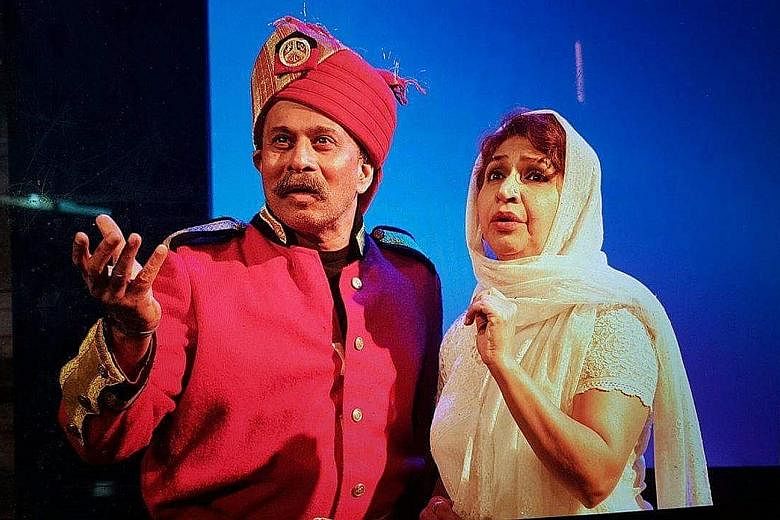REVIEW / THEATRE
WE ARE LIKE THIS ONLY 2
Hum Theatre
Goodman Arts Centre, Black Box
Last Friday
This series of related comic sketches roasts different members of the Indian community in Singapore, then gently grills the audience for its take on integration.
We Are Like This Only 2 is a loose sequel to We Are Like This Only, staged twice in 2013 and based on real conflicts between Indians long-established in Singapore and incoming "new" Indians.
-
BOOK IT / WE ARE LIKE THIS ONLY 2
-
WHERE: Black Box, 90 Goodman Road, Goodman Arts Centre
WHEN: Friday to Sunday, 8pm (Friday and Saturday), 3pm (Saturday and Sunday). The show on Thursday is sold out
ADMISSION: $38 from www.showtickets.asia
We Are Like This Only 2, also supported by the National Integration Council, shows that there have been many cycles of immigration and assimilation into the island, resulting in new Indians, old Indians and very old Indians, with each group looking down on the other.
The play does this best in the central thread where a family of "old Indians" and another of "new Indians" are forced to interact when the daughter and son decide to marry.
The spoken emphasis on integration is dropped and the subtext says all over a dinner where the new Indians flash their diamonds and the old Indians ask with deadly passive aggression when their guests plan to leave.
A barrage of punchlines is delivered by a cast that could stun the audience by simply reading from a dictionary. On stage are director Daisy Irani, her husband and the scriptwriter Subin Subaiah, along with younger married couple Rishi Budhrani and Sharul Channa, who transform their formidable talent for stand-up comedy into perfect timing and a plethora of accents.
The four play the warring parents and star-crossed couple of today and a host of other hopeful immigrants over the course of Singapore's history.
Subaiah and Irani are unforgettable as a sepoy and his long-suffering wife brought over by Raffles, while Budhrani and Channa are hilarious as a convict shipped off to Singapore when he really wanted to go to Australia and his much smarter wife.
Transitions are awkward at first, but smoothed over by the flamboyant costumes (Bela Nansi). Sets (Zubair Ahmed) include the Singapore skyline, thankfully not visible during the historical scenes, and wooden blocks that serve as furniture, cars and stumbling blocks wherever needed, all aided by appropriate mood lighting (Jim Chan) and sound (Manoj Kumar).
Much of the humour comes from in-jokes best known to either the diaspora or the older Indian community in Singapore, but context is provided to make sure everyone has fun.
The play has the last laugh, though, ending without resolution because the audience is supposed to provide one itself. Or maybe not, for as the lovers say of their battling parents: "They are having too much fun not integrating."
What more can be said or done? They are like this only.


